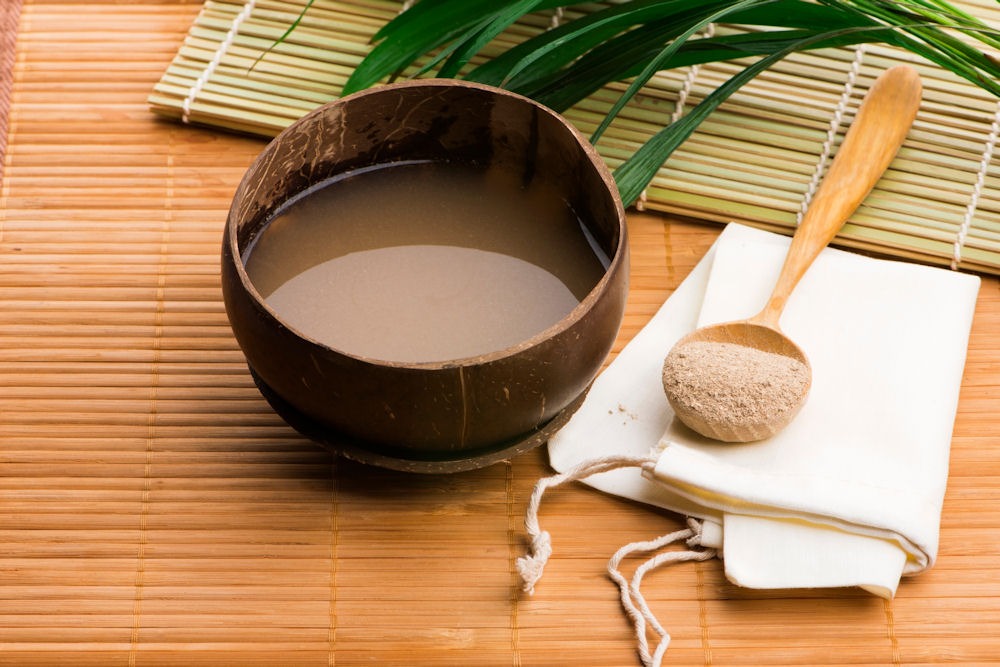Kava is a popular herbal supplement known for its anxiety-reducing, sleep-promoting, and body-relaxing effects. With Kava bars popping up and Kava teas, pastes, and capsules lining the shelves of health food stores, it seems like everyone is jumping on the Kava trend. But before you join the Kava craze, you’re probably wondering—is Kava addictive?
There is a growing discussion about the risks of Kava and if it is safe to consume. If you or someone you love is seeking treatment for drug addiction in Washington, Bayview Recovery Center is here to help!
What Is Kava?
Kava, scientifically known as Piper methysticum, is a plant indigenous to the South Pacific islands, celebrated for its centuries-old tradition of preparation and consumption. Kava is typically made by grinding or pounding the root of the Kava plant, resulting in a somewhat earthy-tasting beverage.
Renowned for its calming and relaxing effects, Kava has been employed for social, ceremonial, and medicinal purposes in Pacific Island cultures. It is often used as a treatment for anxiety and promotes relaxation.
The primary active compounds in Kava are called Kavalactones. These compounds are believed to be responsible for the plant’s sedative and psychoactive effects. Different Kava cultivars and strains can have varying concentrations of Kavalactones, leading to different effects.
While Kava has gained popularity as an herbal remedy for stress and anxiety worldwide, it’s crucial to be aware of potential safety concerns. It is advised to purchase Kava from reputable sources and be aware of local regulations regarding its use.
As with any herbal supplement, you should talk to your doctor before using Kava, especially if you’re on any prescription drugs.
How Do You Take Kava?
Depending on individual preferences and specific needs, there are various ways they want to incorporate Kava into their routine.
The traditional and most common way to consume Kava is by preparing a Kava beverage. The process involves grinding the Kava root into a powder, mixing it with water, and straining the liquid through a cloth or mesh. The resulting drink is usually gray or brown and has a distinctive earthy taste. People typically drink Kava in a social or communal setting, often in a Kava bar or at home with friends.
Kava is also available in capsules or tablets for those who prefer a convenient option over preparing the traditional beverage. These supplements typically contain standardized Kava extracts. It’s important to follow the recommended dosage when using Kava capsules or tablets.
Some people use Kava tinctures or liquid extracts, which are concentrated forms of Kava. These can be mixed with water or other beverages for consumption. Like capsules, it’s important to adhere to the recommended dosage when using Kava tinctures and extracts.
Instant Kava products are also available and are designed for quick and convenient preparation. They typically come in powder form, which can be mixed directly with water without the need for traditional Kava preparation methods. Instant Kava is known for its convenience but may vary in quality and taste.
Kava teas are pre-packaged tea bags containing Kava root or Kava extracts. These teas are prepared by steeping the tea bag in hot water, similar to how one would prepare herbal tea.
In addition to capsules and tablets, Kava is available in other supplement forms, such as powders or tinctures. These supplements are often marketed for their potential relaxation and stress relief benefits.
It’s important to note that the strength and quality of Kava can vary depending on the preparation method and the source of the Kava root. Additionally, the effects of Kava may differ depending on the individual, and its use should be approached with caution, especially in light of concerns about potential liver toxicity.
If you choose to use Kava, it’s advisable to follow recommended dosages, be aware of potential risks, and consult with a healthcare professional if you have any underlying mental health conditions or are taking medications that could interact with Kava.
Is Kava Addictive?
 The question of whether Kava meets the criteria for addiction is a complex one and depends on how addiction is defined and understood. Addiction typically involves a compulsive and harmful pattern of substance use, where an individual continues to use a substance despite negative consequences. While Kava itself is not considered highly addictive in the same way that drugs like opioids or stimulants are, it can lead to physical and psychological dependence in some individuals.
The question of whether Kava meets the criteria for addiction is a complex one and depends on how addiction is defined and understood. Addiction typically involves a compulsive and harmful pattern of substance use, where an individual continues to use a substance despite negative consequences. While Kava itself is not considered highly addictive in the same way that drugs like opioids or stimulants are, it can lead to physical and psychological dependence in some individuals.
The potential for Kava addiction or dependence varies from person to person. Factors that can influence the risk of Kava dependence include the frequency and amount of Kava consumed, individual susceptibility, and the presence of underlying mental health or substance abuse issues.
Long-term and heavy Kava use may result in tolerance, where an individual needs to consume more Kava to achieve the desired effects and withdrawal symptoms when they try to reduce or stop Kava consumption. Withdrawal symptoms may include irritability, anxiety, restlessness, and insomnia.
Is Kava Legal?
The legal status of Kava varies from country to country and even within different regions or states. Kava has faced legal restrictions and bans in some places due to concerns about its safety, particularly regarding potential liver toxicity and adverse effects when consumed in excess.
In the United States, Kava is legally available and is commonly sold as a dietary supplement. It is often promoted for its potential to promote relaxation and improve sleep quality. However, in 2002, the FDA issued a cautionary statement regarding the safety and efficacy of Kava-based products.
The FDA highlighted concerns about potential liver-related adverse effects associated with Kava consumption and referenced international reports linking Kava use to conditions such as hepatitis, cirrhosis, and liver failure.
To date, only Germany, France, Canada, Switzerland, and the United Kingdom have implemented specific regulations governing the sale and use of Kava.
Using Kava: Dosage, Effects, and Potential Risks
When using Kava, it’s important to do so safely and responsibly. Kava can have mild sedative effects, so you’ll want to start with a low dose to see how it affects you. The typical dosage for Kava extract is around 250 mg, taken 1-3 times per day. You can also make Kava tea using powdered Kava root.
The effects of Kava generally appear within 30 minutes of consumption and last around 2–3 hours. You may experience:
- Relaxation and reduced anxiety: Kava works as a natural tranquilizer, relaxing the body and mind.
- Improved sleep: Due to its calming effects, Kava may help you fall asleep faster and sleep more soundly.
- Pain relief: Kava appears to have analgesic properties, reducing physical discomfort and tension.
- Euphoria: Some people report feelings of contentment, well-being, and even bliss after taking Kava.
While Kava is not addictive like other substances that target GABA receptors in the brain, it can still be habit-forming for some. It’s best not to use Kava every day to avoid building up a tolerance or becoming dependent on its effects.
Kava appears to be safe for short-term use (up to 6 months), but some potential side effects and risks include:
- Liver damage: Kava may cause liver inflammation and damage, especially at high doses or when combined with alcohol or other medications metabolized by the liver. Get regular checkups and blood tests if using Kava long-term.
- Sedation: High doses of Kava can lead to drowsiness, incoherence, and even temporary loss of muscle control. Do not drive or operate heavy machinery after taking Kava.
- Drug interactions: Kava may interact with other sedatives like benzodiazepines as well as some medications for Parkinson’s and Alzheimer’s disease. Talk to your doctor before combining Kava with any other drugs.
- Tolerance: With regular Kava use, some individuals may build up a tolerance, meaning they need to consume more of it to achieve the desired effects. This can increase the risk of dependency or addiction-like behavior.
- Withdrawal Symptoms: Although Kava withdrawal symptoms are generally mild compared to withdrawal from drugs or alcohol, some users may experience irritability, anxiety, and sleep disturbances when they stop using Kava after extended periods of regular consumption.
- Psychological Dependence: While Kava is not considered highly addictive, some people may develop a psychological dependence on it. This may result in regular Kava usage to manage relaxation and anxiety, potentially leading to habitual use.
To minimize potential risks associated with Kava use, it’s advisable to:
- Use Kava in moderation and not daily.
- Follow the recommended dosages provided on Kava product labels.
- Be mindful of any changes in your physical or mental health while using Kava.
- Avoid combining Kava with alcohol or other substances that affect the central nervous system.
- Consult a healthcare professional, especially if you have a dual diagnosis or are taking medications that might interact with Kava.
When used occasionally and carefully at moderate levels, Kava seems to be a safe option for natural anxiety and stress relief. However, due to its potential side effects, Kava is not recommended for long-term daily use or in high doses.
It’s crucial to make informed choices and prioritize your well-being when considering its use.
Seek Addiction Treatment at Bayview Recovery Center
 At Bayview Recovery Center, we are committed to helping you or your loved one on the path to recovery from drug addiction. Our dedicated team of professionals offers compassionate and evidence-based treatment programs tailored to your unique needs.
At Bayview Recovery Center, we are committed to helping you or your loved one on the path to recovery from drug addiction. Our dedicated team of professionals offers compassionate and evidence-based treatment programs tailored to your unique needs.
With a focus on holistic healing and long-term sobriety, we provide a safe and supportive environment to break free from the grip of addiction. Contact us today to take the first step towards a brighter, drug-free future.

 Dr. Dave Cundiff, MD, MPH (Medical Reviewer)
Dr. Dave Cundiff, MD, MPH (Medical Reviewer)






